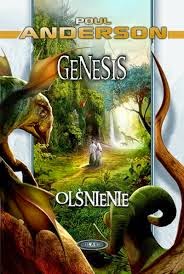These are curious beginnings for novels:
"The story is of a lost treasure guarded by curious monsters, and of captivity in a wilderness, and of a chase through reefs and shoals that could wreck a ship. There is a beautiful girl in it, a magician, a spy or two, and the rivalry of empires. So of course - Flandry was later tempted to say - it begins with a coincidence."
-Poul Anderson, A Circus Of Hells IN Anderson, Young Flandry (New York, 2010), pp. 197-365 AT p. 197.
"Every planet in the story is cold - even Terra, though Flandry came home on a warm evening of northern summer. There the chill was in the spirit."
-Poul Anderson, A Knight Of Ghosts And Shadows IN Anderson, Sir Dominic Flandry: Last Knight Of Terra (New York, 2012), pp. 339-606 AT p. 342.
"The story is of a man, a woman, and a world. But ghosts pass through it, and gods. Time does, which is more mysterious than any of these."
-Poul Anderson, Genesis (New York, 2001), p. 3.
All three inform the reader about "the story" that he is about to read but who is the informant? The omniscient narrator of third person narrative is usually invisible, off-stage, not acknowledging that a "story" is being told but placing information inside the reader's mind without making him reflect on how that information came to be there. The reader shares the narrator's omniscience about the fictional world but without in any way thinking about him.
By contrast, the first of these three narrators is in our face with his conversational style, "...a spy or two..." He can hardly be the author, Poul Anderson, directly addressing his readers. Anderson does occasionally do this but in an introduction or foreword, not in the text. The first narrator knows what "...Flandry was later tempted to say..." so, if this narrator is not omniscient, then he must be a friend or confidante of Flandry's who is relating the latter's adventures to some third party?
The first narrator misleads us with that word "...magician..." The character in question is a mystic, occultist and hypnotist. And those "...reefs and shoals..." are a gravitational field so that the "...ship..." is a spaceship. By contrast, the second narrator acknowledges that his narrative is science fiction with his second word.

11 comments:
Hi, Paul!
And, as you know, I wrote a couple of essays commenting on Anderson's skillful writing of opening paragraphs. Properly done, these "curious" opening paragraphs makes the reader, consciously or not, ask questions about what he read, makes him interested and curious, and so persuades him to continue reading. And more likely to buy a copy of the book if the reader first saw these paragraphs at a bookstore.
Sean
Hi, Paul!
I've been wondering, what do you think of the opening paragraph for WE CLAIM THESE STARS? That too was as skillfully written text meant to interest readers and entice them to continue reading the story.
Sean
Sean,
A good beginning. Ruethen of the Long Hand and the Crystal Moon are exotic names. We vicariously anticipate the feast and ball while wondering how Ruethen's enemies, whoever they are, will respond to the invitation.
Paul.
Hi, Paul!
Exactly! Considering how the Empire and Merseia was coming close to open war with each other because of the Syrax crisis, I would argue that it would have been more appropriate for the humans Ruethen invited to politely decline attendance at the feast and ball while relations between the two powers were so bad. But that would have been showing "pride of race," which had slipped from Terra at the time!
Sean
Sean,
But we don't necessarily know any of that when starting to read the story...
Paul.
Hi, Paul!
I'm not sure I understand your point. The opening paragraph of WE CLAIM THESE STARS does say warships of both powers were prowling and fighting each other at the Syrax cluster. And, instead of showing "pride of race" by declining Ruethen's invitation, many of the humans thought it more desirable to appear "well bred and sophisticated" by accepting it, that it would be thought "gauche" to decline the invitation.
Really, this is a subtly written and dense paragraph with a surprising amount to be read or deduced from it.
And I'm inclined to accept your speculation about the opening paragraph of A CIRCUS OF HELLS that the story was being narrated or retold by a friend of Flandry.
Sean
Sean,
You are right. I was reading only the first sentence!
Paul.
Hi, Paul!
No problem! I was wondering if I had missed something. And I speculated in my first "Andersonian Paragraphing" note that Ruethen was subtly mocking the Terrans by inviting them to that feast and ball at the Crystal Moon.
Sean
I suppose if I was in a position to get invited by Ruethen, I would accept in an 'it is best to know your enemy' attitude.
Rather like why Heinlein visited the Soviet Union.
Kaor, Jim!
I mostly agree. If Flandry himself, who had absolutely no illusions about the Merseians, and their hostile designs for the Empire and the human race, was willing to accept Ruethen's invitation, go ahead and do so. But be sure to have no illusions about your host!
Ad astra! Sean
Post a Comment